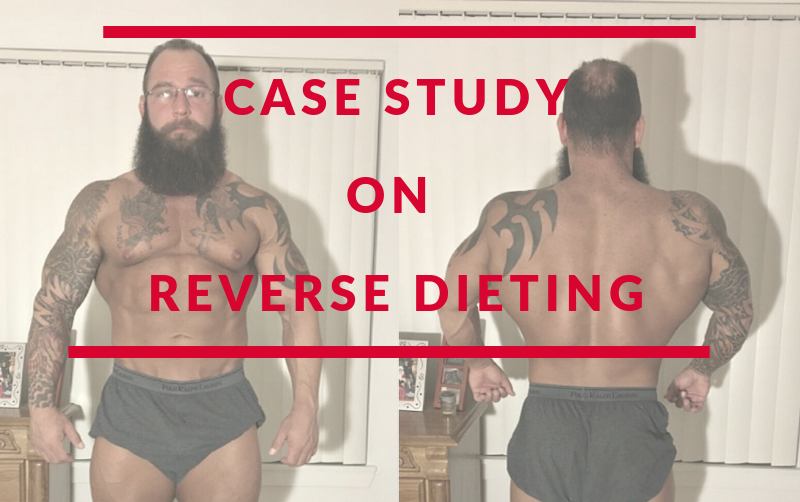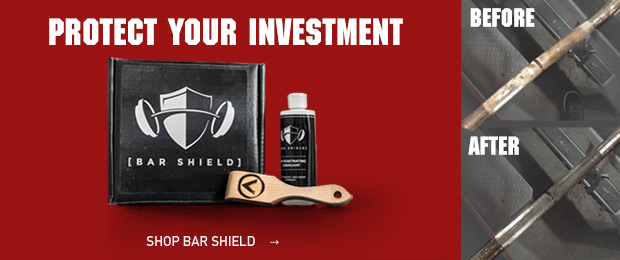
Top 4 priorities to get in line to improve one’s physique, performance, and overall well-being are nutrition, training, sleep, and stress management. Nutrition is a key component to dial in for anyone who wants to make a significant change to their body, but it can also be a component that can leave you in shambles if done incorrectly. This is something we see a lot in the bodybuilding community and not so much in the strength community but it is starting to creep in with so many people dieting to make smaller weight classes and athletes fighting hard to obtain a certain image that the top athletes in their weight class have.
So what I wanted to do with this log is kind of take you through a new client onboarding process for someone who is trying to lose weight. In doing so this will allow you to reflect on your current diet and to adjust course if need be. Jeff is a new client of mine we just started working together this past week. He came to me wanting to drop some body fat and really try to get lean for the first time in his life. He is a trained athlete in his mid-twenties with a training age of roughly 8 years, bodyweight is 215lbs and is sitting around 15% body fat. He has good size and muscle on him but is of the body type that allows him to put on fat easily.
When starting out with a new client you need to understand some of the pitfalls that will determine a successful diet for that particular person. The biggest thing to focus on is building a plan to can be adhered to, consistency is the key to success for any athlete. With Jeff I had him fill out a questionnaire and with some back and forth conversation we had a plan of attack to drop some body fat. Through our conversations, I found out Jeff has been dieting hard for a year now and he went from 250lbs to 215lbs. He has also never had blood work done before which is something I always try to get before starting a diet. The only other thing I needed was to know how many calories he was consuming, so I had him track for 5 days and took the average and compared it to weight loss, maintenance, or weight gain to get an idea of where his maintenance level was. This is a huge key for dieting success, you don’t want to guess someone’s calories you want to know for sure where they are at so you can make an intelligent call on where to start them.
A lot of red flags went up during this process, no blood work and have been dieting for a year, these 2 things immediately made me rethink if this was a good idea, then he sent me over his calories and he was at 1600-1800 calories a day. After hearing this I knew we had to go another direction, but he was dead set on dieting so what to do?? Communication is the real key to becoming a good coach, so I had to convey to Jeff the pitfalls of where he was at and where he was heading, I sent him some studies to back up my claims. Some of the things we went over were, when dieting for an extended period of time you have more potential of losing muscle mass, you have a big decrease in testosterone production, your metabolic rate slows down dramatically just to name a few things. It is a positive feedback loop that will affect you in a very negative way, the more muscle you lose the harder it is to lose fat, the harder it is to lose fat the more work you have to do and the longer you have to diet for.
Here are 2 studies that go over the downsides of dieting for an extended period of time and to get down to extremely lean levels.
https://jissn.biomedcentral.com/articles/10.1186/1550-2783-11-7
https://www.ncbi.nlm.nih.gov/pubmed/23412685
Beyond all of these things the worst was how low his current calorie intake was, the only way to reverse the issues I spoke about above is to increase calories. The negative aspect of this is that you are in a prime spot to accrue fat very rapidly and you can even increase the number of adipose cells as well if done improperly. Being able to communicate all of this to Jeff allowed him to build trust in me and I made sure to reiterate to him that the end goal is to get leaner but right now we need to focus on reversing out of this deficit, get some blood work done, and try to add on as much muscle as possible with minimal fat gain. This will be roughly a 6-8 month process of getting him in a great spot to diet again.
So with this case study, I will take you through how we are approaching this and the rationale behind the adjustments I make. The first adjustment was to reduce cardio in half and to increase his caloric intake mostly in the form of carbohydrates. Since Jeff is not contest lean we can take this process a little bit slower than normal. I also gave him a training day and a non-training day diet plan. His current macro breakdown looks like this:
| OFF DAY | PROTEIN | CARBS | FAT | NOTES |
| MEAL 1 | 65 G | 0 G | 25 G | 1 cup of free veggies |
| MEAL 2 | 65 G | 0 G | 25 G | 1 cup of free veggies |
| MEAL 3 | 65 G | 0 G | 25 G | 1 cup of free veggies |
| MEAL 4 | 65 G | 30 G | 18 G |
| Training Day | PROTEIN | CARBS | FAT | NOTES |
| MEAL 1 Pre Workout | 42 G | 65 G | 8 G | |
| MEAL 2 Post Workout | 42 G | 120 G | 0 G | |
| MEAL 3 | 42 G | 45 G | 8 G | |
| MEAL 4 | 42 G | 0 G | 25 G | 1 cup of free veggies |
| MEAL 5 | 42 G | 0 G | 25 G | 1 cup of free veggies |
As a coach it is our job to inform the athlete and to make sure we have their best interest in mind, I could have lost Jeff as a client but I refused to diet him down and screw him up for a long time physically and mentally.









